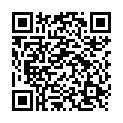|
|
|
| Module code: E407 |
|
|
1V+1U (2 hours per week) |
|
2 |
| Semester: 4 |
| Mandatory course: yes |
Language of instruction:
German |
Assessment:
Written examination
[updated 10.03.2010]
|
E407 (P211-0228) Electrical Engineering, Bachelor, ASPO 01.10.2005
, semester 4, mandatory course
|
30 class hours (= 22.5 clock hours) over a 15-week period.
The total student study time is 60 hours (equivalent to 2 ECTS credits).
There are therefore 37.5 hours available for class preparation and follow-up work and exam preparation.
|
Recommended prerequisites (modules):
None.
|
Recommended as prerequisite for:
|
Module coordinator:
Prof. Dr. Günter Schultes |
Lecturer:
Prof. Dr. Günter Schultes
[updated 10.03.2010]
|
Learning outcomes:
After completing this module, students will be acquainted with a representative range of actuators used in industrial applications. They will have acquired a basic understanding of the techniques and methods important in constructing and using actuators to solve engineering problems.
[updated 10.03.2010]
|
Module content:
1.Overview of actuators; terminology, characteristic features and key performance data
2.Fluid actuators
2.1 Hydraulics: Fundamentals, components, valve technology
2.2 Proportional hydraulics
2.3 Pneumatic actuators
3.Thermal actuator elements: Bimetallic, shape memory and expansion elements
4.Special purpose actuators
4.1 Piezoelectric actuators and modern applications
4.2 Magnetostrictive actuators
4.3 Microactuators
[updated 10.03.2010]
|
Teaching methods/Media:
Lecture notes, blackboard, video projector
[updated 10.03.2010]
|
Recommended or required reading:
W. Roddeck, Einführung in die Mechatronik, Teubner Verlag
D. Scholz, Proportional Hydraulik, Fest Didactic, Springer Verlag
D.J Jendritza, Technischer Einsatz neuer Aktoren, Expert Verlag, 1998
[updated 10.03.2010]
|


